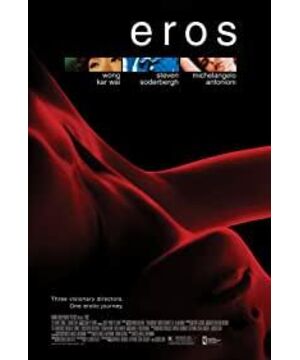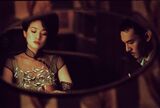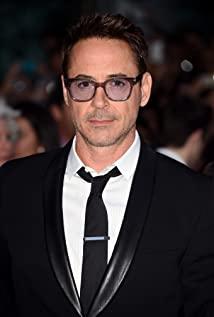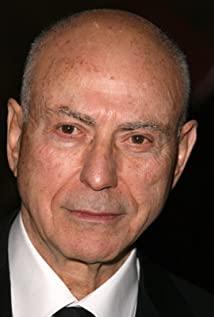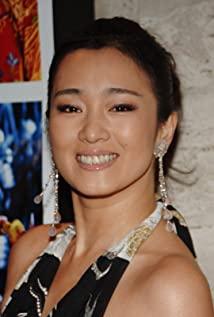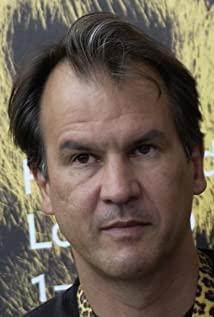Unit 1: "Hands"
In 1963, on a scorching sun-scorching afternoon, the apprentice tailor Zhang (Zhang Zhen) was apprehensive, because today he was going to personally measure a customer for the first time, and the customer was very concerned about the shop. It is extremely important to her, she is Miss Hua (Gong Li), a well-known courtesan. Sitting in Miss Hua's gorgeous apartment, there were constant moans of love between men and women from the back room, Zhang felt like sitting on pins and needles.
After the man left, Zhang walked into Hua's room. After the infection just now, Zhang was unable to control his soul, and he was stunned by the fragrant carcass wearing lace pajamas in front of him. Flowers asked him to take off his trousers, stroke her with his hands, tell him that since he wants to be a tailor, he will touch a lot of women, and that he will soon replace the master as his own tailor, remembering this beauty makes beautiful clothes. Hua's hands spread over his lower body, and Zhang quickly finished the man's first time in a throbbing almost fainting.
In the years that followed, Zhang often saw Hua, but Hua never mentioned their first encounter or even revealed the slightest ambiguity. However, Zhang has been obsessed with that nirvana of desire, and every time he cuts, he perceives the hands of flowers.
As Zhang's skills and fame flourished, Hua's life began to take a nosedive. Although she changed more men than clothes, she still had nothing, and even sold her clothes until she moved out of the apartment.
A few years later, Zhang saw Hua living in a dilapidated hotel, with haggard hardship written on his face. She wants Zhang to make a dress and wear it to meet her old lover from America. This is her last hope. Zhang worked hard to design and cut, and the size of the flower was already familiar to him. He thought that maybe this dress could save the fate of the flower. However, when he returned to the hotel with the finished clothes, Hua had become a soliciting prostitute and became seriously ill. When Flowers was dying, she brought up their first encounter...
Unit 2: "Balance"
In New York in 1955, advertising agency Nick Penrose (Robert Downey Jr.) had his first encounter with psychiatry Gabor (Alan Alkin) meets as Nick is plagued by chronic work stress and recurring dreams. In his dreams, Nick often sees a woman (played by Al Jinz) who has just had a love affair. The woman gets up and goes to the bathroom, where she lies comfortably in the bathtub, the phone rings, and she is indifferent. The woman came over, picked up her purse, kissed him and left. Nick knew the woman in a dream, but every time he woke up, he couldn't remember the woman's identity. The dream also troubled Nick's wife. She planned to break up with Nick unless Nick said who the woman was. On the reclining chair in Poll's consultation room, Nick repeated the dream at his request, describing any possible details. Boer analyzed that the telephone ring in the dream symbolizes the disturbance of the outside world. Nick hopes to be free from the outside world like that woman. The huge pressure from work makes Nick have a serious sense of crisis. He should turn off the alarm clock at the bedside. , get more sleep. With the relaxation of the spirit, under the comfort of Boer's words, Nick gradually fell asleep on the reclining chair...
Unit 3: "Dangerous Relationship"
Middle-aged American Christopher (Christopher Buchz) and his wife, Chloe (Regina Naimi), are at an impasse in their relationship, turning a blind eye to the Italian sights around them. . Even with his wife in the sun, Christopher doesn't give him a second look. While driving, Christopher saw two young girls bathing naked under a waterfall and lamented that he had never found this incredible place. As they dine in a restaurant, Christopher's attention is drawn to a beautiful girl (Louisa Raniari), who Chloe says lives in the castle. The atmosphere of the two was lonely, and the enthusiasm of the adjacent table could not infect the two hearts that were drifting apart. Kolo threw the cup to the ground, but unexpectedly it didn't shatter. They strolled through the woods and soon began a heated argument.
Christopher drove to the castle and met the girl, she led Christopher to the rooftop with a clear view, and then to her room, all clothes torn, Christopher asked if he got into her bed What will happen? The girl said she could say her name. So, the desires of the two were released immediately. In the morning, the girl said her name was Linda, and Christopher hurried away.
In late autumn, Chloe received a call from Christopher from Paris, and the two began to calmly face the conflict. Chloe expressed his thoughts in his words, but Christopher remained indifferent. One day, Chloe and Linda, who were walking on the seaside at the same time, met...
Three bad faces
. As the carriers of desire in the three short films, the outstanding performances of the three actresses complemented each other and became the biggest attraction in "Eros".
As early as the premiere at the Venice Film Festival, Gong Li's performance in "The Hand" won a lot of praise. It can be said that Gong Li's performance in this film is more direct and bold, and the style is different from the past. In the film, her hand is her weapon to seduce men to the best of her ability, and in stark contrast to her is the hand of a little tailor, who cuts gorgeous clothes with her hands to increase her bargaining power to please men. The hand becomes the bond of the delicate relationship between her and the little seamstress, and Gong Li's memorable lines in the film are even more the highlight of the film: "You have always been so kind to me, I have never repaid you, and I am afraid that in the future. There's no chance. I've lost everything, I used to have my body, and now I don't attract anyone anymore, only my hands are left. You won't mind, will you?"
Al Jinz doesn't have a single line in the film, and a few simple actions are enough to dazzle the hero and make it indelible. The Paris-born, German-raised actress has been on the silver screen since the age of 15, using her talent for music and dance to appear in more than 20 films and TV shows, including "Mother" and "Frankie and Johnny."
Linda, played by Luisa Raniali, is the hottest character in the film. She uses her youthful capital to sway her desires, but after that, she hides pain and crisis. Luisa is a rising star in the Italian film industry in recent years. She is favored by the Italian film industry for her role in Leonardo Piracioni's "The Princess and the Pirates", and won the Best Newcomer Award for Italian Films for this film.
Cinematographer : Antonioni
The 93-year-old film master Michelangelo Antonioni was one of the pioneers of Italian neorealism in the 1940s and was once called by Bazin as the representative of "psychological neorealism" figure. His works focus on depicting the spiritual loss and desolation of middle-class and wealthy people, as well as the anxiety-filled situations in their lives. The film narrative is often laid out with non-dramatic conflicting characters' moods. In 1943, he established the vanguard of Neorealism with his first short documentary "The People of the Po". In 1950, he made his debut film "A Record of Some Kind of Love", which was praised as "the new breath of Italian cinema".
In the early 1960s, Antonioni completed the pathological study of human emotions with his famous trilogy "Adventures", "Eclipse", "Night" and "Red Desert". In the late 1960s, Antonioni left his home country to travel the world, and the style of his works changed from the signature obscurity to tight plot and strong criticism. In 1966, he shot "Zoom" in London, which showed the unknowability of reality; then in the United States, he shot "Zabriskie Point," a true reflection of the American student movement, which was severely boycotted by the United States at the time, and many years later Its revolutionary and greatness was recognized. In 1974, Antonioni traveled to North Africa, the United Kingdom, Spain and Germany to shoot "Occupation: Reporter". The film not only borrowed the form of road movies, but also reflected the inner hesitation and self-exile of the characters in the constant escape, and became the first film in film history. An experiment in electronic cinema.
After suffering a stroke in 1985, Antonioni has lost his ability to move and speak, but he has not given up his pursuit of film. Antonioni once said: "There is only one thing in life for me, and that is film." "Eros" may be the last film of his life, and he hopes to express to the world in his eyes in his final years sex and love.
View more about Eros reviews


